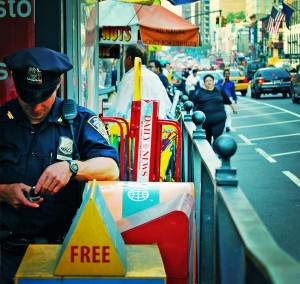2013 Best Lawyer In Charlotte winner Brad Smith of Arnold & Smith, PLLC answers the question “Do I need to hire an attorney if I have been falsely accused?”
An old client of mine called me yesterday to report some exciting news: the truth was setting him free. He had been accused of a crime. The police called him and asked him to talk. He did, then he called me.
 I told him the last thing he should do is talk to the police. When they called asking him to take a lie-detector test, he told them he would exercise his 5th Amendment right to remain silent. Good for him.
I told him the last thing he should do is talk to the police. When they called asking him to take a lie-detector test, he told them he would exercise his 5th Amendment right to remain silent. Good for him.
A few days later, a police officer called to tell him the prosecutor didn’t think there was enough evidence to charge him.
“It’s not over,” I told him. “Just because they don’t have enough evidence now doesn’t mean they won’t gather more evidence and charge you later,” I said. I repeated the ages-old advice from criminal lawyers to clients: Silence is golden.
Many clients of mine – and most people in general – fail to grasp the complexity inherent in how and why people are charged with crimes. In some cases, it seems like the government is in a rush to hold someone accountable for a crime, while in other cases the plodding, methodical conduct of law enforcement and prosecutors drives a justice-hungry public crazy.
 Charlotte Criminal Lawyer Blog
Charlotte Criminal Lawyer Blog









 The answer is a resounding yes! Invariably, the next question is, “How is that fair?”
The answer is a resounding yes! Invariably, the next question is, “How is that fair?”